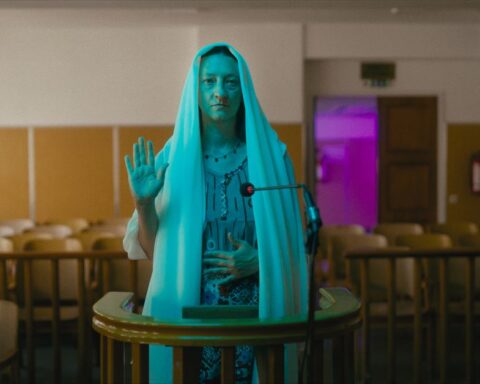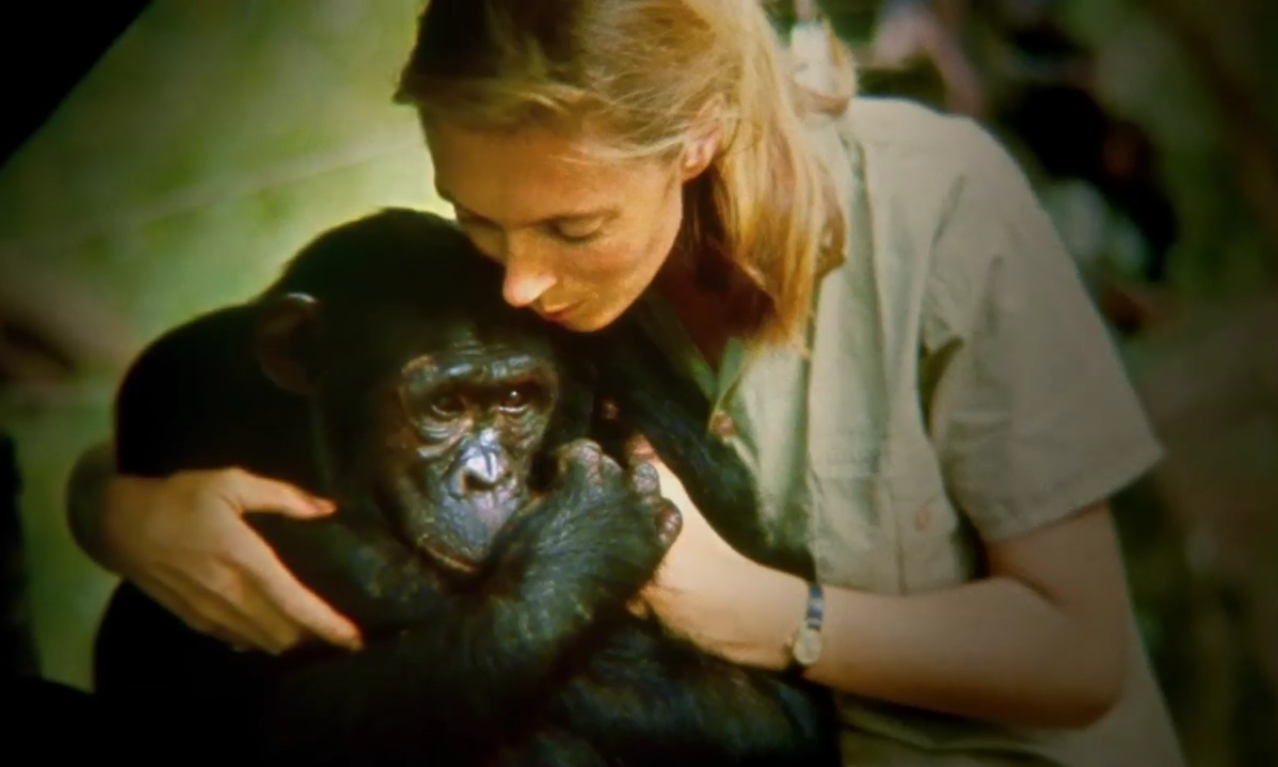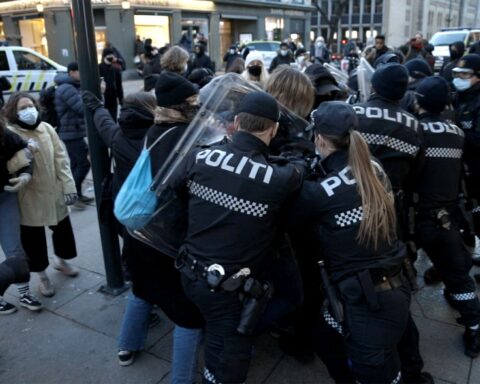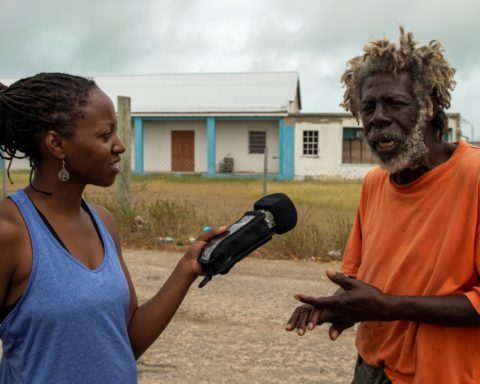Makala
(France, 96 min.)
Dir. Emmanuel Gras
Programme: TIFF Docs (North American Premiere)
Makala, Emmanuel Gras’ documentary about an episode in the life of a Congolese charcoal producer/salesman, Kabwita Kasongo, is just about the bleakest cinematic evocation of poverty, comparable to De Sica’s classic The Bicycle Thief in its pure hopeless desperation.
It’s the physicality and materiality and sheer strife of hard labour that are Gras’ subjects. We see, in exhaustive detail, Kasongo cutting down a tree, burning it for charcoal, packaging it, loading as much as he can of it onto a bicycle, walking it down a desolate road to the nearest town, Kolwezi, and bargaining with the presumably equally impoverished people there to sell it, all to buy some medicine for his sick child and a few sheets of metal to build a house.
The adventure is full of small defeats: Kasongo loses some charcoal when a passing truck knocks his bike over; gets basically robbed; sells his charcoal for less than he wanted; discovers that the metal he needs is prohibitively expensive. The only respite is family—his wife and children at home and his wife’s family in Kolwezi—and, maybe, religion: the film ends with a strange and powerful scene of religious devotion at a tent-church in town, in which Kasongo evidently relates to the story of Job.
The film isn’t just another portrait of One Man’s Struggles In A Crazy World, though. There are other people in that church, and they’re pushing hundreds of pounds of charcoal along that same dusty road alongside Kasongo. The focus may be on Kasongo, but it’s clear that everybody’s in that same boat.
The resultant, nightmarish vision of Congo—the blaring horns, swindlers, and improvised housing of the southern town of Kolwezi—is as vivid as that of Fiston Mwanza Mujila’s great novel Tram 83, set in a thinly disguised version of the nearby Lubumbashi. And the desolation of the road to town is almost as overpowering. (Makala’s soundtrack is almost completely limited to heightening this sensation, and it is almost completely unnecessary: the action speaks for itself.) Its focus may seem small at first, but Makala ultimately has a lot to say.












